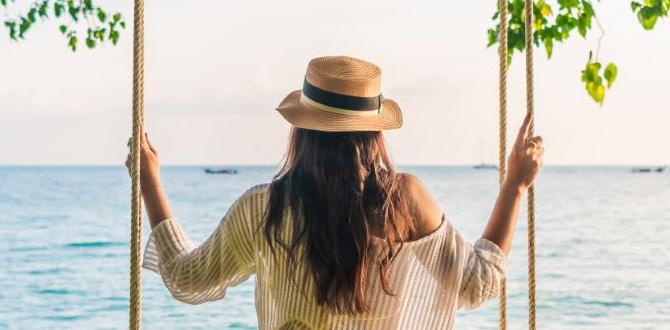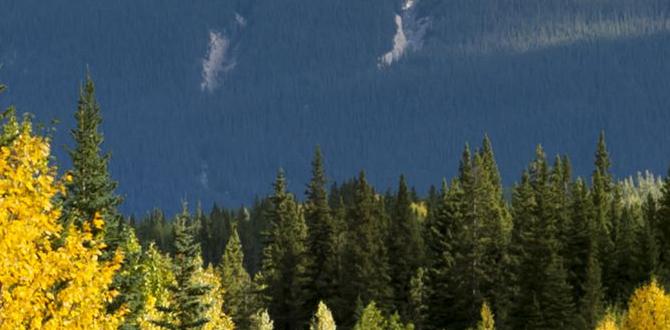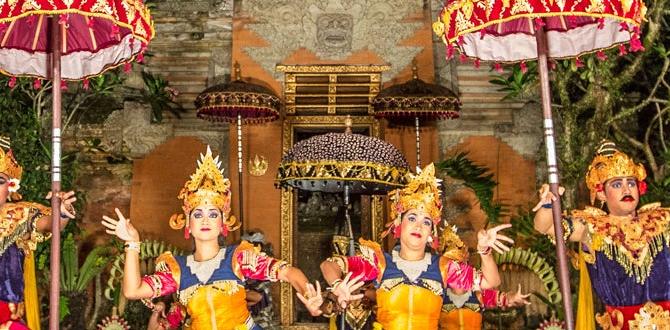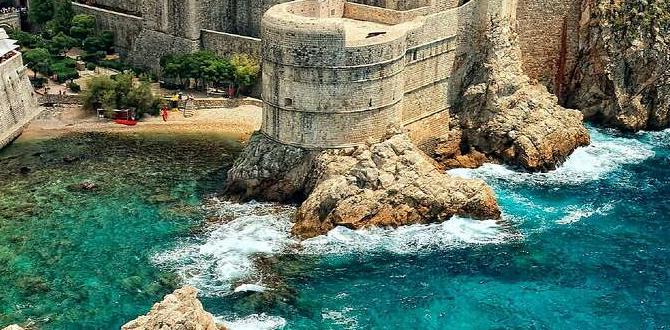Algeria mid-range travel guide: Essential tips focus on budget-friendly accommodation, local transport, delicious street food, and cultural experiences. Prepare for stunning landscapes and rich history without breaking the bank. We cover packing, safety, and essential hacks for a comfortable and memorable trip.
Planning a trip to Algeria can feel a bit daunting, especially if you’re looking for a balanced experience that’s both enriching and kind to your wallet. Many travelers worry about the costs involved or how to get around comfortably without spending a fortune. It’s a common concern, but with the right information, you can absolutely explore this fascinating country on a mid-range budget.
This guide is here to demystify Algeria for you, offering practical, easy-to-follow advice to ensure your adventure is smooth and enjoyable. We’ll walk you through everything you need to know, from where to stay to what to eat, making your Algerian journey stress-free and exciting. Let’s dive into how you can experience the best of Algeria without the hefty price tag.
Your Algeria Mid-Range Travel Guide: Essential Tips
Algeria, the largest country in Africa, is a treasure trove of ancient history, diverse landscapes, and vibrant cultures. From the bustling medinas of Algiers to the majestic Sahara Desert, this North African gem offers incredible experiences for the budget-conscious traveler. This guide is designed to help you navigate Algeria on a mid-range budget, ensuring comfort, authenticity, and unforgettable memories.
Understanding Algeria: A Mid-Range Traveler’s Perspective
When we talk about “mid-range” travel in Algeria, we’re focusing on finding a sweet spot between luxury and strict backpacking. This means opting for comfortable, clean accommodations that aren’t five-star hotels, eating at local restaurants and cafes rather than high-end establishments, and utilizing a mix of public and private transport.
It’s about experiencing the authentic pulse of Algeria while maintaining a good level of comfort and convenience. This approach allows for deeper immersion into the local culture and a more genuine connection with the places you visit.
Key Pillars of Mid-Range Travel in Algeria:
- Accommodation: Clean, well-located guesthouses, charming boutique hotels, and reputable local “pensions.”
- Food: Savouring delicious tagines, couscous, and street food from local eateries and market stalls.
- Transport: Combining comfortable long-distance buses or trains with local taxis or ride-sharing apps in cities.
- Activities: Enjoying guided tours for key historical sites, exploring souks, and experiencing natural wonders without opting for exclusive private excursions.
Planning Your Algeria Adventure: Pre-Trip Essentials
A little preparation goes a long way when traveling to Algeria on a mid-range budget. Getting your documents in order and understanding basic logistics will save you time and stress.
Visa Requirements
Visa requirements for Algeria can vary depending on your nationality. It’s crucial to check the latest regulations well in advance. Many nationalities require a visa, which typically needs to be applied for at an Algerian embassy or consulate in your home country or a neighboring one.
Processing times can sometimes be lengthy, so allow ample time. For up-to-date information, always consult the official website of the Algerian Ministry of Foreign Affairs or your local Algerian embassy. For example, as of recent checks, many European citizens can find detailed information on visa procedures through their respective government travel advisories, which often link to embassy requirements.
Best Time to Visit
The climate in Algeria is diverse, ranging from Mediterranean on the coast to extreme desert heat inland. For comfortable mid-range travel, consider visiting during the shoulder seasons:
- Spring (March to May): Pleasant temperatures along the coast and in the northern regions, ideal for exploring cities and historical sites. Desert temperatures are also manageable.
- Autumn (September to November): Similar to spring, offering mild weather and fewer crowds. This is a fantastic time for desert trips as the heat begins to recede.
Summer (June-August) can be very hot, especially inland and in the Sahara, while winter (December-February) can be cool and rainy on the coast.
Currency and Budgeting
The Algerian Dinar (DZD) is the official currency. While ATMs are available in larger cities, they can sometimes be unreliable or dispense limited amounts. It’s advisable to carry a mix of cash (USD or EUR are easily exchangeable) and a debit/credit card.
A rough mid-range daily budget might look like this:
| Category | Estimated Daily Cost (USD) |
|---|---|
| Accommodation (Mid-range hotel/guesthouse) | $40 – $70 |
| Food (Mix of local restaurants and cafes) | $20 – $35 |
| Local Transportation (Taxis, buses) | $10 – $20 |
| Activities & Sightseeing | $15 – $30 |
| Miscellaneous (Souvenirs, snacks) | $10 – $15 |
| Total Estimated Daily Budget | $95 – $170 |
Note: These are estimates and can fluctuate based on your travel style, specific choices, and the current exchange rate.
Essential Packing for Comfort and Convenience
Packing smart is key for mid-range travel, ensuring you have everything you need without overpacking. Consider versatile clothing suitable for different climates and cultural expectations.
- Clothing: Lightweight, breathable fabrics. Long sleeves and pants are respectful, especially when visiting religious sites or rural areas. A light jacket or shawl for cooler evenings.
- Sun Protection: Wide-brimmed hat, sunglasses, and high SPF sunscreen are non-negotiable, especially for desert excursions.
- Comfortable Footwear: Sturdy walking shoes are essential for exploring cities and historical sites.
- Modesty: Algeria is a Muslim country. While coastal cities can be more relaxed, dressing modestly is appreciated and often necessary, especially outside of major tourist hubs. For women, a headscarf can be useful for entering mosques (though many are closed to non-Muslims) or in more conservative areas.
- Medications & First-Aid: A basic kit with pain relievers, antiseptic wipes, plasters, and motion sickness medication. Personal prescription medications should be carried in their original packaging. Consider items for digestive upset, as travel can sometimes affect your stomach. Solutions like discreet adult diapers or pull-ups can offer peace of mind for long journeys or when immediate restroom access is uncertain, ensuring comfort and dignity throughout your travels.
- Adapters: Algeria uses Type C and Type F electrical plugs. A universal adapter is a good idea.
- Reusable Water Bottle: Staying hydrated is crucial. You can refill this after purchasing bottled water to reduce plastic waste.
Navigating Algeria: Transportation Tips
Getting around Algeria efficiently and affordably is crucial for a mid-range trip. The country has a decent, though sometimes challenging, transportation network.
Getting Around Cities
In cities like Algiers, Oran, and Constantine, you’ll find a mix of options:
- Taxis: The most common way to get around. Agree on the fare before you start your journey or ensure the meter is used. It’s wise to have your destination written down in Arabic or French, as not all drivers speak English.
- Ride-Sharing Apps: Apps like “Hala” are gaining popularity in Algiers and offer a convenient, often pre-priced, option.
- Public Buses: These are very affordable but can be crowded and less convenient for tourists unfamiliar with the routes.
- Trams: Available in Algiers and Oran, offering a pleasant way to see parts of the city.
Inter-City Travel
For longer distances, consider these options:
- SNTF (Société Nationale des Transports Ferroviaires): Algeria has a train network connecting major cities. It’s generally comfortable and scenic, offering a more relaxed way to travel than by road. Booking tickets in advance is recommended, especially for popular routes.
- Buses: Companies like Confort Bus and Louage (shared taxis that operate like buses on fixed routes) connect most towns and cities. Louage can be a more adventurous, budget-friendly option.
- Domestic Flights: For long distances, such as to Tamanrasset in the Sahara, flights with Air Algérie can save significant time. Booking in advance can secure better prices.
Where to Stay: Mid-Range Accommodation Options
Finding comfortable and affordable places to stay is paramount for a mid-range trip. While luxury hotels exist, Algeria offers many charming and clean alternatives.
Guesthouses and Pensions
These are often family-run establishments offering a more personal touch. They provide private rooms, sometimes with en-suite bathrooms, and are usually more affordable than hotels. Look for them in older parts of cities or in quieter neighborhoods. They often serve traditional breakfasts, giving you a taste of local hospitality.
Boutique Hotels
Many Algerian cities have smaller, independent hotels that offer good value. These can range from beautifully restored traditional buildings to modern, unfussy establishments. They usually provide better amenities than pensions and a more professional service. A quick search on booking sites using filters for “3-star hotels” or looking at reviews for “good value” can yield excellent results.
Serviced Apartments
For longer stays or for those who prefer a bit more independence, serviced apartments can be a great option. They offer the convenience of a kitchen, allowing you to save on some meals, and often come with hotel-like services.
Eating Well on a Budget: Algerian Cuisine
Egyptian cuisine is incredibly rich and varied, and you can enjoy its diverse flavors without spending a fortune. The key is to embrace local eateries.
Must-Try Dishes for Mid-Range Travelers:
- Couscous: The national dish, often served on Fridays, a delicious semolina dish typically prepared with vegetables and meat.
- Tagine: A slow-cooked stew, usually made with meat, vegetables, and aromatic spices, cooked in a conical clay pot.
- Mechoui: Slow-roasted lamb or mutton, a specialty often found at local celebrations and some restaurants.
- Pastries: From honey-drenched baklava to almond-filled cornes de gazelle, Algerian pastries are a treat.
- Street Food: Don’t shy away from grilled meats, freshly baked bread, and seasonal fruits from market stalls.
Where to Eat:
- Local Cafes (Cafés): Perfect for strong coffee, mint tea, and light snacks or sandwiches.
- “Snack” Restaurants: These are casual eateries serving a variety of grilled meats, sandwiches, and popular dishes.
- Market Stalls: For incredibly cheap and tasty treats, explore the local markets for fresh juices, pastries, and savory snacks.
- Family-Run Restaurants: Often found in residential areas, these offer authentic home-cooked meals at very reasonable prices.
Be adventurous! Trying food from local stalls and smaller restaurants is not only budget-friendly but also offers the most authentic culinary experience.
Cultural Etiquette and Safety Tips
Respecting local customs and staying aware of your surroundings will enhance your experience and ensure a safe trip.
Cultural Considerations:
- Dress Modestly: As mentioned, it’s important to dress conservatively. For women, covering shoulders and knees is a good rule of thumb. Men should also avoid overly casual wear like sleeveless shirts in public.
- Greetings: A polite greeting is essential. “As-salamu alaykum” (Peace be upon you) is a common greeting. A handshake is usually appropriate for men meeting men, and sometimes men and women, depending on comfort levels and context.
- Hospitality: Algerians are known for their hospitality. If invited for tea or a meal, it’s a great honor.
- Ramadan: If traveling during Ramadan, be mindful that eating, drinking, and smoking in public during fasting hours is prohibited and highly frowned upon. Many restaurants may be closed during the day.
- Photography: Always ask permission before taking photos of people, especially women.
Safety in Algeria:
Algeria is generally a safe country for tourists, but like anywhere, it’s wise to be aware.
- Solo Female Travel: While many solo female travelers report positive experiences, it’s advisable to be more vigilant. Dress modestly, avoid walking alone late at night in deserted areas, and be aware that you might attract more attention.
- Scams: Be aware of common tourist scams, such as overcharging by taxi drivers or unsolicited guides.
- Demonstrations: Political situations can change. Stay informed about local news and avoid areas where protests or demonstrations may be occurring. The U.S. Department of State’s Bureau of Consular Affairs provides up-to-date travel advisories for Algeria, which can be a valuable resource for understanding any current safety concerns.
- Desert Travel: If venturing into the Sahara, always go with a reputable guide and ensure you have sufficient supplies (water, fuel, food). The Algerian Ministry of Tourism often has lists of licensed tour operators.
Must-See Destinations for Mid-Range Travelers
Algeria boasts an incredible array of attractions that can be explored on a mid-range budget.
1. Algiers (El Djazair): The White City
Explore the UNESCO World Heritage Kasbah, a maze of narrow streets and historic buildings. Wander along the Corniche for sea views, visit the Notre Dame d’Afrique basilica, and immerse yourself in the vibrant atmosphere of the city. Mid-range accommodation is plentiful within the city.
2. Oran: The Lively Port City
Known for its lively culture, beautiful bay, and Spanish influences. Visit the Santa Cruz fortress for panoramic views, explore the Place du 1er Novembre, and enjoy the city’s nightlife and esplanades.
3. Constantine: The City of Bridges
Perched dramatically on a rocky outcrop, Constantine is famous for its stunning bridges, including the Sidi M’Cid suspension bridge. Visit the Roman ruins of Tiddis nearby and soak in the unique urban landscape.
4. The Sahara Desert: Timgad and Djémila
While a full Sahara expedition might lean towards higher budgets, you can experience its grandeur. Consider a shorter, organized trip to explore sand dunes, oases, and Berber culture. Alternatively, explore the magnificent Roman ruins of Timgad and Djémila, both UNESCO World Heritage sites, which offer a glimpse into Algeria’s ancient past. These sites are accessible via day trips or overnight stays from nearby towns.
5. The Hoggar Mountains & The Sahara Experience
For a true desert adventure, the Sahara is unparalleled. You can arrange multi-day treks, camel rides, and overnights under the stars. While some luxury desert camps exist, many mid-range operators offer excellent value, providing an authentic experience with comfortable (though not opulent) camping and local meals. Booking through a recommended local agency in Tamanrasset or Djanet is advisable.
Sample Itinerary: A 10-Day Mid-Range Algeria Exploration
This itinerary focuses on a mix of history, culture, and natural beauty, maintaining a mid-range budget.
- Days 1-3: Algiers
- Arrive in Algiers. Settle into a boutique hotel or guesthouse.
- Explore the Kasbah, city center, and Corniche.
- Visit museums and enjoy local cuisine in “snack” restaurants.
- Day 4: Day trip to Tipasa
- Take a local bus or taxi to the Roman ruins of Tipasa, a UNESCO site on the coast.
- Day 5: Travel to Constantine
- Take a domestic flight or a comfortable bus/train to Constantine. Check into a mid-range hotel.
- Days 6-7: Constantine and Surroundings
- Explore the bridges, old town, and museum.
- Consider a day trip to the Roman ruins of Tiddis.
- Day 8: Travel to Oran
- Take a train or bus to the coastal city of Oran. Find accommodation in a well-rated hotel.
- Day 9: Oran Exploration
- Visit the Plaza du 1er Novembre, the Grand Mosque, and Fort Santa Cruz. Enjoy the seaside atmosphere.
- Day 10: Departure
- Depart from Oran or return to Algiers for your flight home.
This itinerary is flexible and can be adapted. If the Sahara is a priority, you would likely need to dedicate significant time (at least 4-5 days) and potentially adjust other locations.




